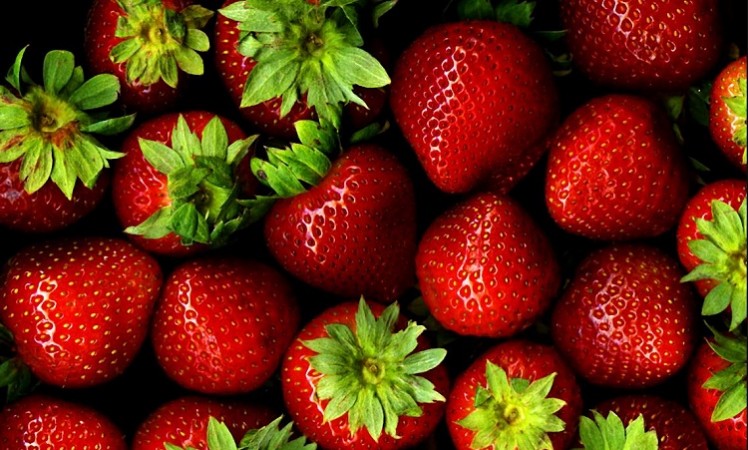
Managing Belly Size: A Guide to Substituting with Strawberries and Controlling Foods for Better Health"
In today's fast-paced world, maintaining a healthy lifestyle often takes a back seat. One of the common concerns many people face is an expanding waistline. An excessively large belly not only affects one's appearance but can also lead to various health issues. However, with the right approach to diet and mindful eating habits, it's possible to manage belly size effectively. Incorporating specific foods, such as strawberries, and controlling certain dietary elements can significantly aid in achieving a healthier belly and better overall well-being.
Understanding the Belly Predicament
A protruding belly isn't just a cosmetic concern; it can indicate a build-up of visceral fat around the abdominal area. This type of fat surrounds vital organs and poses a higher risk of developing conditions like heart disease, diabetes, and metabolic disorders. Hence, finding ways to reduce this fat accumulation becomes pivotal for health enhancement.
Substituting with Strawberries
Strawberries, these little red delights, offer a plethora of health benefits. They are low in calories and high in fiber, making them an ideal snack to curb hunger pangs without contributing to excessive calorie intake. Moreover, their natural sweetness provides a satisfying alternative to sugary treats, aiding in weight management and reducing cravings for unhealthy snacks.
Replacing calorie-dense desserts or processed sweets with a couple of strawberries not only satisfies the sweet tooth but also provides essential nutrients like vitamin C, antioxidants, and fiber. These elements promote digestion, support the immune system, and assist in controlling blood sugar levels. Incorporating this delicious fruit into daily dietary habits can be an effective strategy to manage belly size.
Controlling Belly-Expanding Foods
Certain foods can contribute to belly fat accumulation and digestive issues. Limiting or avoiding these items can significantly aid in controlling belly size:
1. Processed Foods and Sugars: Foods high in added sugars and processed carbohydrates can lead to weight gain and bloating. Swap these for whole grains, fruits, and vegetables to maintain a healthy diet.
2. Trans Fats and Saturated Fats: These fats, commonly found in fried and processed foods, contribute to visceral fat build-up. Opt for healthier fats like those found in nuts, seeds, avocados, and oily fish.
3. Carbonated Drinks: These beverages can cause bloating and gas. Replace them with water, herbal teas, or infused water with natural flavors like lemon or cucumber.
Gas Trouble Prevention Foods
Avoiding foods that cause gas buildup or bloating can contribute to a flatter belly and better digestive health. Incorporate these foods known to reduce gas and bloating:
1. Ginger: Known for its digestive properties, ginger helps in reducing gas and bloating. Adding ginger to meals or drinking ginger tea can aid in digestion.
2. Peppermint: Peppermint tea or incorporating peppermint oil into meals can ease digestive discomfort and reduce bloating.
3. Probiotic-Rich Foods: Yogurt, kefir, and fermented foods contain beneficial bacteria that aid in digestion and can reduce gas and bloating.
Incorporating strawberries, controlling certain foods, and being mindful of gas-trouble prevention foods can contribute significantly to managing belly size and promoting better overall health. Remember, a balanced diet, regular physical activity, and mindful eating habits are key elements in achieving and maintaining a healthy waistline.